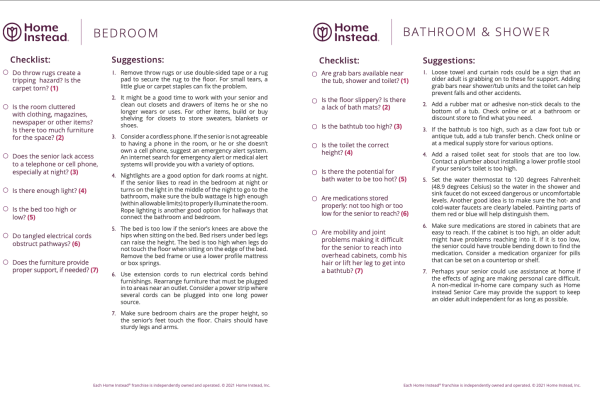Balancing self-care and caregiving can feel like an impossible task. You're dedicating your time and energy to caring for a loved one while trying to maintain your well-being. It's essential to recognize that neglecting your own needs can lead to burnout and affect the quality of care you provide. This post will explore practical strategies to help you achieve a healthy balance. By implementing these tips, you'll not only enhance your loved one's quality of life but also sustain your own health and happiness. Let's discover how to make self-care a priority, even amidst the demanding role of caregiving.
Understanding the Demands of Caregiving
Caregiving for a loved one is a challenging role that comes with many responsibilities and unique demands. Whether you’re caring for an aging parent, a child with special needs, or a spouse with a chronic illness, the tasks can be overwhelming. Here, we will explore the various types of caregiving responsibilities and the common challenges caregivers face.
Types of Caregiving Responsibilities
As a caregiver, you wear many hats. You might find yourself jumping from one role to another, each with its own set of tasks and demands.
Physical Care Tasks
Physical care tasks encompass a wide range of activities required to ensure the safety and comfort of the person you're caring for. These include:
- Assisting with mobility: Helping them move around the house, getting in and out of bed, or using mobility aids.
- Personal hygiene: Bathing, grooming, and toileting are essential parts of daily life that often require assistance.
- Household chores: Cooking meals, cleaning, and laundry can become part of your routine to create a comfortable living environment.
Emotional Support
Providing emotional support is as crucial as physical care. It involves:
- Listening and comforting: Being there for the person, listening to their concerns, fears, and frustrations.
- Encouraging and motivating: Helping them stay positive and motivated through their challenges.
- Social interaction: Engaging in meaningful conversations and activities to prevent feelings of loneliness and isolation.
Financial Management
Handling finances can be daunting, but it's a key responsibility for many caregivers. You might need to manage:
- Paying bills: Ensuring all utilities, rent/mortgage, and other ongoing expenses are covered.
- Budgeting: Keeping track of medical expenses, household needs, and caregiving costs.
- Insurance and benefits: Navigating insurance claims and understanding benefits to maximize available resources.
Medical Coordination
Medical coordination requires a good deal of organization and communication. This can include:
- Scheduling appointments: Keeping track of medical, therapy, and dental appointments.
- Medication management: Ensuring medications are taken on time and in the correct doses.
- Communicating with healthcare providers: Being the point of contact between different healthcare professionals and the person you’re caring for.
Challenges Faced by Caregivers
Caregiving is rewarding, but it's also filled with challenges that can take a toll on your well-being. Understanding these challenges can help in finding ways to balance self-care and caregiving.
Physical Exhaustion
The physical demands of caregiving can lead to exhaustion. Lifting, moving, and assisting with daily tasks require significant energy and strength. It’s crucial to rest when you can and seek help if physical tasks become too burdensome.
Emotional Stress
Caring for a loved one can be emotionally draining. Dealing with their every need, managing crises, and facing the reality of their condition can cause significant stress. It’s important to find outlets for your emotions, whether through talking to friends, journaling, or seeking professional counseling.
Social Isolation
Caregiving often requires significant time and commitment, leaving little room for personal relationships and social activities. This isolation can lead to feelings of loneliness. Finding a support group or connecting with other caregivers can offer much-needed camaraderie.
Financial Strain
Balancing caregiving and financial responsibilities can be challenging. Many caregivers reduce their work hours or leave jobs entirely to provide care, leading to financial strain. It helps to create a budget, look into financial aid programs, and seek advice from financial planners who specialize in caregiving.
Understanding the demands and challenges of caregiving is the first step in finding balance. By recognizing these aspects, you can take proactive steps to ensure you're taking care of yourself while also providing the best care for your loved one.
Defining Self-Care
When taking care of a loved one, it's easy to forget about your own needs. However, balancing self-care and caregiving is crucial for both you and the person you're looking after. Let's dive into what self-care really means and how you can integrate it into your life as a caregiver.
What is Self-Care?
Self-care is more than just pampering yourself. It's about maintaining your physical, emotional, and mental health. For caregivers, self-care might seem like a luxury or even an act of selfishness. But ignoring self-care can lead to burnout, making it harder to provide the best care for your loved one.
Common myths about self-care include the idea that it's only about indulging in spa days or expensive hobbies. In reality, self-care is about everyday practices that keep you healthy and happy.
Types of Self-Care
Self-care comes in various forms, and each type is essential. Here are the main categories:
-
Physical Self-Care:
- Exercise: Aim for at least 30 minutes a day.
- Nutrition: Eat balanced meals with fruits, vegetables, and proteins.
- Sleep: Try to get 7-9 hours of sleep each night.
-
Emotional Self-Care:
- Express Feelings: Talk to friends or a therapist.
- Self-Compassion: Be kind to yourself.
- Relaxation: Practice mindfulness or meditation.
- Mental Self-Care:
- Stimulate Your Brain: Read books or engage in hobbies.
- Breaks: Take regular breaks to prevent mental fatigue.
- Positivity: Surround yourself with positive influences.
- Social Self-Care:
- Connections: Spend time with loved ones.
- Support Groups: Join caregiver support groups.
- Boundaries: Set boundaries to protect your time and energy.
By incorporating these types of self-care into your routine, you can ensure you're in the best shape to help your loved one. Remember, taking care of yourself is not just an option; it's a necessity for balancing self-care and caregiving effectively.
Strategies for Balancing Self-Care and Caregiving
Balancing self-care and caregiving is essential for your well-being and the loved one you’re looking after. It's a challenging juggling act that requires planning and support. Here are some practical strategies to help you maintain this balance.
Time Management
One of the keys to managing both caregiving and self-care is effective time management. Here are a few strategies you can try:
- Prioritize Tasks: Make a to-do list and focus on what’s most important. This helps you tackle urgent tasks first and reduce stress.
- Create Schedules: Use calendars or apps to schedule your day. Allocate specific times for caregiving duties and personal time.
- Set Realistic Goals: Don’t overwhelm yourself. Set small, achievable goals each day to avoid burnout and track your progress.
- Block Time for Yourself: Just as you schedule caregiving tasks, block out time for activities you enjoy. Treat this time like an important appointment.
Seeking Support
Caregiving doesn’t have to be a solo effort. Involving others can make a significant difference.
- Family and Friends: Don’t hesitate to ask for help. Delegating tasks to family members or friends can provide relief and give you some much-needed downtime.
- Professional Help: Hire professional caregivers for assistance. This can be through in-home care services or respite care options.
- Support Groups: Join caregiver support groups, either in-person or online. Sharing experiences with others who understand can be very comforting and provide practical advice.
Integrating Self-Care into Daily Routine
Self-care doesn't have to be time-consuming. There are several small changes you can make daily to look after yourself.
- Short Self-Care Activities: Take a few minutes each day for activities that relax you. It could be reading a book, taking a walk, or enjoying a hot cup of tea.
- Mindfulness Techniques: Practice mindfulness exercises like deep breathing or meditation. These can reduce stress and help you stay present.
- Healthy Diet and Exercise: Eat balanced meals and incorporate physical activity into your daily routine. Even simple exercises like stretching or short walks can boost your energy levels.
Take the Next Step
If you’re noticing signs that indicate the need for in-home care for your loved one, don’t wait. Contact us at Home Instead to discuss how our in-home care services can help. Our compassionate Care Professionals are ready to provide the support your family needs. Call us 24/7 at 860-265-8550 or complete the form below and one of our Client Care Coordinators will be in touch to see how we can help and provide additional resources.



